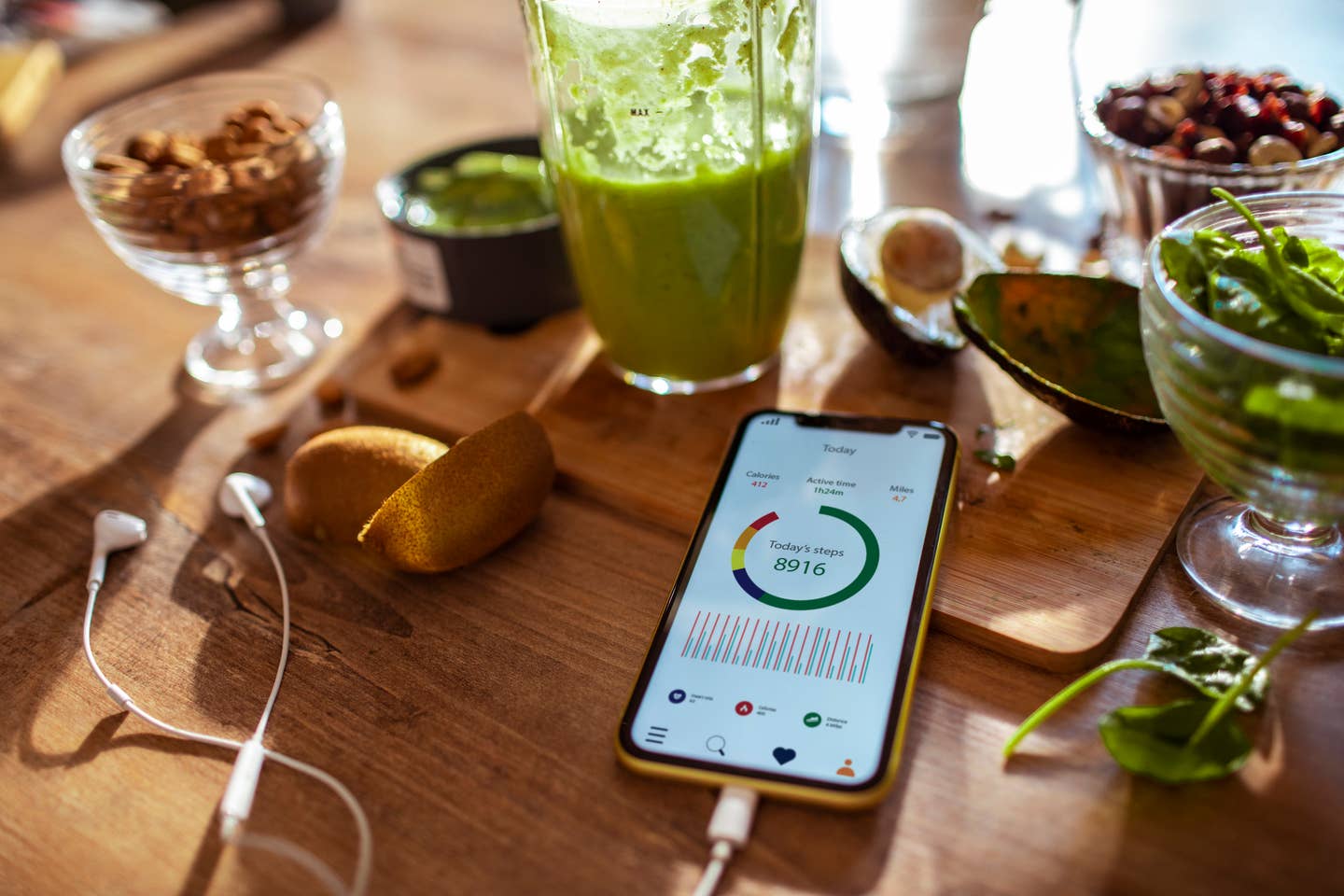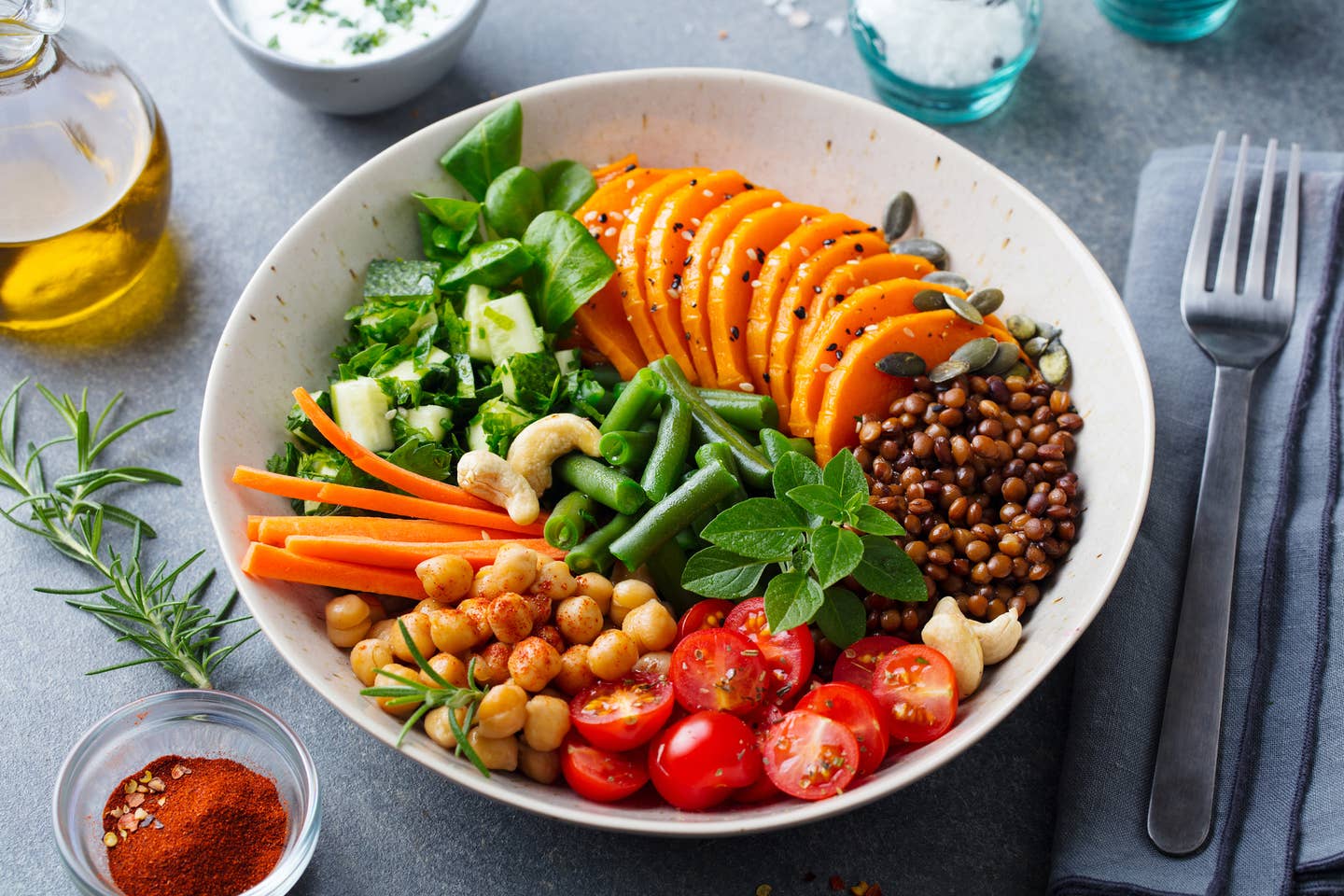
How to Maintain Weight Loss On a Plant-Based Diet
Whether you are one of the fortunate who has managed to lose unwanted pounds, or you're still working on achieving your goals, the next question is: "How do you keep it off?" The answer is that at every step of your weight loss journey, you will benefit from planning ahead.
First, know your personal weight-loss style. Perhaps you’re trying a weight loss meal plan, like The Beet’s Plant-Based Diet, or you are simply eating less junk food and more weight loss-friendly meals (hello, endless non-starchy veggies!).
If weight loss is a New Year's resolution of yours, what happens over the next few weeks is the key to your long-term success. (Almost every study tells us that about 80 percent of resolutions will get abandoned in February.) Instead of over-restricting your diet, and then allowing yourself to backslide into bad habits, there are ways to keep the healthy weight loss going and keep it off. Here are six tips to help you maintain weight loss, over the long term, from a registered dietitian.
How to Maintain Weight Loss On a Plant-Based Diet
1. Enjoy Your Food
If you search for the ‘best diet for weight loss’ you will get many different answers. All these diets are basically designed to put you in a calorie deficit – which will lead to weight loss – however if you don’t like what you are eating, you won’t maintain that weight loss.
If a diet is designed to restrict you from your favorite foods, you will be miserable and there is no way that you will stick to it long-term. Too much restriction may also cause you to binge on your favorite foods on a later day, and lead to a hard-to-escape restriction and binge cycle.
2. Experiment With New Vegetables
Expanding from the first tip, the one thing that all weight-loss diets have in common is that it’s recommended to eat a lot of vegetables. Vegetables are nutrient powerhouses, providing fullness and energy, with a low-calorie count. Try to load half of your plate with veggies at each meal –– this may seem daunting, but it gets easier the more you experiment with new types of vegetables or prepare your favorite types of vegetables in new ways.
Try adding some riced cauliflower to your bowls or in your smoothies. Make a zucchini or eggplant lasagna. Scramble up a bunch of veggies and add to your tofu scramble –– the possibilities are endless! The more you experiment with different types of veggies and preparation methods, the more veggies you will be adding to your diet.
3. Familiarize Yourself With Your Eating Patterns
You may or may not be tracking your food during your weight loss journey –– if you’re not, you may want to start. Tracking your food can be as simple as writing it down in a food journal. The goal here is to simply be aware and mindful of your food choices.
Tracking doesn’t have to be a punitive tool, instead, it can be a tool to help you learn more about yourself and your hunger. Approach tracking with a sense of curiosity vs judgment – i.e., you can assess why you were hungrier on certain days (are you eating less protein-rich foods, or are you at a certain time in your cycle?). Tracking your food can also be a way to help you with meal planning.
4. Meal Prep and Plan
Speaking of meal planning –– do it. Don’t leave it to chance that you will just make healthy choices when mealtime comes – it’s hard to make healthy choices when you are starving.
Usually, more nutritious choices take a bit more time to prepare, so your best bet is to get into the habit of meal prepping. It’s important to make this a habit and not just a one-time thing. Mark some time in your calendar each week to set aside some time for meal planning and meal prepping.
To master the art of meal prep, sign up for The Beet x Rouxbe's Healthy Plant-Based Diet Cooking Course.
5. Don't Try to Out-Exercise a Poor Diet
Exercise has many benefits; however, your workouts may not necessarily be helping to maintain your weight loss efforts. This is for a few reasons. First off, we tend to overestimate how many calories we burn during exercise. Research has even shown that high-tech watches overestimate the calories we’ve spent working out.
Sometimes seeing how much we burned working out can provide justification to consume more calories –– if we aren’t hungry. Or if we are hungry, it is common to over-reward ourselves with food after a workout. As well, this is a justification in our minds that since we worked out, the quality of the food doesn’t matter –– however, this is so far from the truth. We could end up consuming processed or high glycemic index foods, which can lead to insulin spikes, which can lead to extra fat storage.
6. Look Beyond Weight Loss
When I’m discussing how to maintain weight loss with my clients, I normally recommend capturing those reasons for change beyond weight loss. What does that weight loss represent, that is important to the person? Is it a reduction in cardiovascular disease risk which runs in their family? Does that weight loss mean that the person has more energy to play with their kids? Would weight loss mean more confidence?
All these end goals are important to highlight, as they will likely help the person further commit to the changes that they are making to achieve weight loss. Weight loss is more than aesthetics.
Bottom Line: Use These Strategies to Maintain Weight Loss.
If you follow these tips, you are more likely to maintain that weight loss that you worked so hard to achieve. Sometimes the biggest battle is maintaining.
For more expert advice, visit The Beet's Health & Nutrition articles.
More From The Beet






